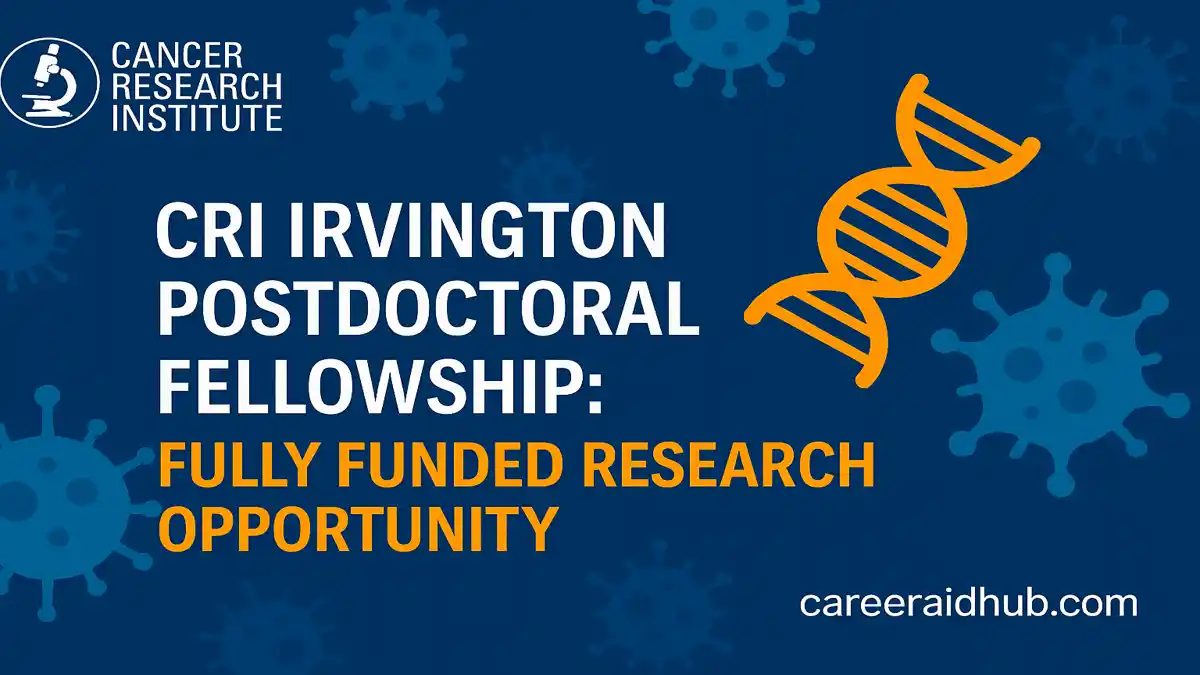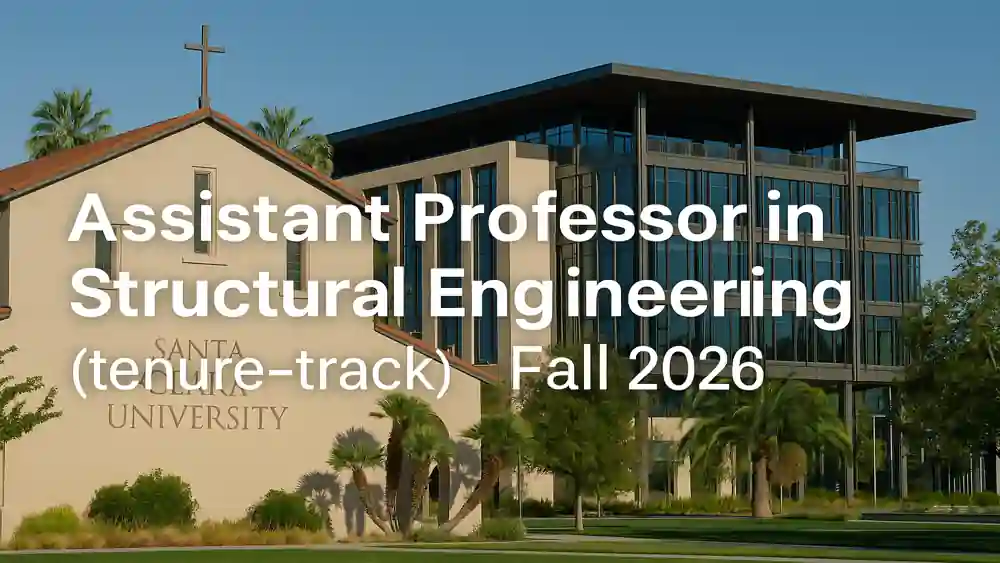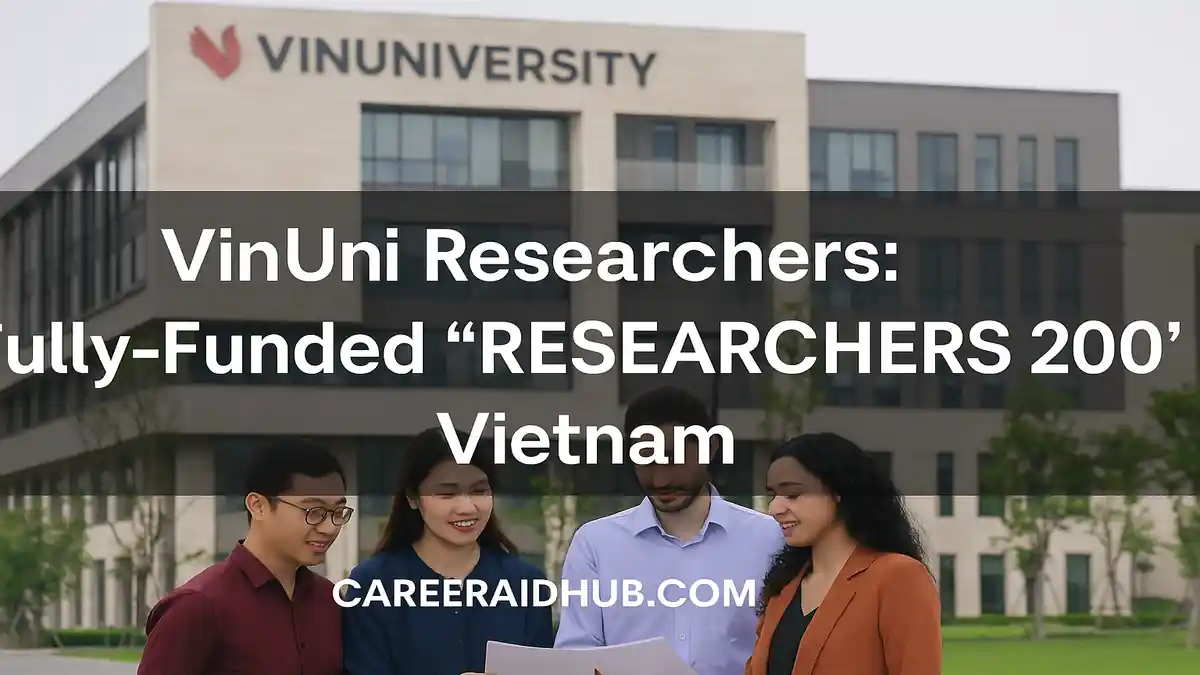CRI Irvington Postdoctoral Fellowships 2025–2026: Fully Funded Cancer Research Opportunity
Hero Highlight (50 words):
The CRI Irvington Postdoctoral Fellowship, offered by the Cancer Research Institute, supports outstanding early-career scientists conducting innovative cancer immunology and immunotherapy research. With annual deadlines in March and September, it provides funding, mentorship, and prestige, enabling fellows to push the boundaries of knowledge and shape the future of cancer treatment .
Introduction
For early-career scientists seeking to contribute to one of the most transformative areas of modern medicine, the CRI Irvington Postdoctoral Fellowship represents an exceptional opportunity. Administered by the Cancer Research Institute (CRI), this program equips promising researchers with the financial backing and institutional recognition needed to pursue bold, high-impact projects in cancer immunology and immunotherapy.
Applications are accepted twice each year, with deadlines falling on March 1 and September 1 (adjusted to the next weekday if a holiday or weekend interferes). For the upcoming cycle, the deadline is scheduled for September 2025, with submissions due no later than 11:59 p.m. Eastern Time.
What Is the CRI Irvington Postdoctoral Fellowship?
The CRI Irvington Fellowship was created in
honor of
William Irvington, a philanthropist who recognized the value of empowering young scientists. Unlike conventional funding mechanisms that sometimes discourage risk-taking, this fellowship is designed to encourage
innovation, cross-disciplinary thinking, and creative approaches to cancer research.
Administered by the Cancer Research Institute, the program seeks to advance understanding in areas such as tumor immunology, immune system regulation, and translational therapies. By supporting these critical areas, CRI is building a new generation of researchers who will bring forward novel insights and interventions capable of improving patient survival and quality of life.
Why the Fellowship Is Important
The global rise of cancer immunotherapy has reshaped oncology in profound ways. Landmark treatments such as checkpoint inhibitors, CAR-T cell therapy, and cancer vaccines have already demonstrated the immune system’s potential to eradicate malignant cells. Yet major challenges remain, including therapy resistance, limited efficacy in certain tumor types, and complex interactions within the tumor microenvironment.
By funding postdoctoral fellows, the CRI fellowship ensures that scientific inquiry into these challenges continues to expand. This program is particularly significant because it:
-
-
Supports high-risk projects that may otherwise be overlooked by traditional funding bodies.
-
Connects fellows with global leaders in immunology and oncology through the CRI network.
-
Encourages leadership development, positioning fellows to become independent investigators in academia or industry.
In short, the fellowship represents
not just financial support but a
strategic investment in the future of cancer research.
Fellowship Benefits
The fellowship provides a comprehensive package of resources, allowing researchers to focus on their work without the constant pressure of securing funding. Key benefits include:
-
-
Annual Stipend: A competitive salary aligned with U.S. postdoctoral benchmarks.
-
Research Allowance: Supplemental funds for equipment, laboratory supplies, and travel to international meetings or symposia.
-
Prestige and Visibility: Being recognized as a CRI Fellow enhances academic credibility and strengthens applications for faculty or independent research positions.
-
Mentorship: Fellows are guided by experienced principal investigators (PIs) at top institutions, ensuring strong academic and professional development.
These combined elements make the CRI Irvington Fellowship one of the most prestigious and sought-after awards in biomedical research.
Eligibility Requirements
The fellowship maintains clear and transparent eligibility criteria to attract candidates of the highest caliber:
1. Academic Qualifications
-
-
Applicants must hold a doctoral degree (PhD, MD, or equivalent) by the time the award becomes active.
-
Candidates should focus on projects within cancer immunology or immunotherapy, emphasizing either
fundamental biology or translational application.
2. Career Stage
3. Institutional Affiliation
-
-
A secure position in a host laboratory is required, alongside the support of a sponsoring PI.
-
Host institutions may be located in the United States or internationally, provided they maintain strong reputations for research excellence.
4. Citizenship
Application Process
The CRI Irvington Fellowship application process is competitive, requiring careful preparation. Applicants should begin planning several months in advance.
Step 1: Identify a Host Lab and Mentor
Applicants must secure a mentor with expertise in immunology or immuno-oncology. The PI’s research reputation and mentoring track record significantly strengthen applications.
Step 2: Prepare Core Documents
Applications typically include:
justify;">
A detailed research proposal, emphasizing scientific innovation, methodology, and clinical relevance.
An updated CV with publication record.
Letters of recommendation from academic mentors and collaborators.
A sponsoring PI’s statement of support, detailing the lab’s resources and commitment to the applicant’s training.
Step 3: Submit Online
All materials are submitted electronically via the CRI fellowship portal. Submissions close strictly at 11:59 p.m. Eastern Time on the deadline.
Step 4: Peer Review
Applications undergo evaluation by a panel of senior scientists. Reviewers prioritize originality, feasibility, applicant potential, and the quality of mentorship.
Step 5: Notification of Results
Successful candidates are notified within a few months, giving them adequate time to transition into their fellowship roles.
Key Dates for 2025–2026
-
-
September 2025: Next submission deadline (applications close 11:59 p.m. ET).
-
March 2026: Following deadline.
-
Future cycles: Anticipated in September 2026 and March 2027 (dates to be updated soon).
Applicants are strongly advised to begin preparations early, especially to coordinate recommendation letters and refine proposals.
Tips for a Competitive Application
Given the fellowship’s prestige, applications must stand out. Below are strategies to improve competitiveness:
-
-
Select a mentor with proven expertise and a strong publication record in immunology.
-
Frame your research proposal clearly, highlighting how it addresses unmet needs in cancer therapy.
-
Demonstrate past achievements such as publications, conference talks, or awards to showcase your scientific trajectory.
-
Use precise, accessible language so reviewers from adjacent fields can appreciate your proposal.
-
Show long-term vision, outlining how the fellowship will serve as a foundation for independence.
These practices not only strengthen your application but also demonstrate preparedness for leadership roles.
Why Apply to the September 2025 Cycle?
The September 2025 cycle is particularly strategic. Starting projects in early 2026 provides alignment with academic and fiscal calendars, which can simplify laboratory transitions and funding management. Additionally, fellows selected in this round can attend CRI-sponsored conferences, enhancing networking opportunities with senior immunologists and fellow researchers worldwide.
Moreover, applying now helps build early momentum, allowing candidates to leverage fellowship prestige in subsequent faculty or grant applications.
Long-Term Career Impact
Graduates of the CRI Irvington Fellowship frequently secure tenure-track academic appointments, leadership roles in biotechnology and pharmaceutical companies, and recognition through high-impact publications. Many alumni have authored research articles in Nature, Science, and Cell, contributing to paradigm-shifting discoveries in immune-based therapies.
Thus, the fellowship serves not only as financial support but as a career catalyst, providing credibility and visibility that extend far beyond the fellowship period.
Conclusion
The CRI Irvington Postdoctoral Fellowship stands as a hallmark of excellence in cancer research training. With the upcoming September 2025 deadline, aspiring scientists should seize the opportunity to pursue transformative projects in immunology and oncology. This fellowship is not merely a source of funding—it is a launchpad for pioneering contributions to human health .
Researchers passionate about shaping the future of cancer treatment should begin preparing their applications well in advance. For full details and submission requirements, visit the official (see below)
Program Snapshot
| Feature |
Details |
| Program Name |
CRI Irvington Postdoctoral Fellowship |
| Host Country |
Worldwide (U.S. or international institutions) |
| Funded By |
Cancer Research Institute (CRI) |
| Duration |
Up to 3 years |
| Study Mode |
Full-time, in-person at host lab |
| Eligibility |
Early-career postdoctoral scientists in cancer immunology |
| Financial Support |
Annual stipend + research allowance + travel support |
| Fields of Study |
Cancer immunology, immunotherapy, tumor biology |
| Deadline |
September 2025 (next); March 2026 (following); future cycles TBA |
| Official Website |
Cancer Research Institute Fellowship page |
References
-
Cancer Research Institute – Postdoctoral Fellowships Overview
Frequently Asked Questions (FAQs)
What is the CRI Irvington Postdoctoral Fellowship? The CRI Irvington Postdoctoral Fellowship funds early-career scientists conducting innovative cancer immunology and immunotherapy research at leading institutions worldwide.
Who is eligible to apply for the CRI Irvington Fellowship? Applicants must hold a PhD, MD, or equivalent, be within five years of postdoctoral training, and work in cancer immunology or immunotherapy.
How often are CRI Irvington Fellowship deadlines? The fellowship accepts applications twice each year, with deadlines in March and September, adjusted if they fall on weekends or holidays.
Does the CRI Irvington Fellowship accept international applicants? Yes, the fellowship welcomes candidates of all nationalities, provided they are based at an eligible host institution in the United States or abroad.
What financial support does the CRI Irvington Fellowship provide? The fellowship offers a competitive annual stipend, a research allowance for supplies and travel, and recognition within the global cancer research community.
How long does the CRI Irvington Postdoctoral Fellowship last? The fellowship typically supports researchers for up to three years, enabling them to complete high-impact projects in cancer immunology and immunotherapy.
What documents are required for the CRI Irvington Fellowship application? Applicants must submit a research proposal, curriculum vitae, recommendation letters, and a sponsoring principal investigator’s statement of support.
When will applicants be notified of CRI Irvington Fellowship results? Successful candidates usually receive notification within a few months after the deadline, following a rigorous peer-review process.
What research areas are supported by the CRI Irvington Fellowship? The fellowship supports projects in tumor immunology, immune system regulation, translational cancer immunotherapy, and related areas advancing cancer treatment.
Why should researchers apply for the CRI Irvington Fellowship? The fellowship provides funding, mentorship, and international recognition, making it a strong career accelerator for future leaders in cancer research.
Premium Mentorship for a Stronger Application
- Premium Mentorship: personalised 1:1 guidance for this and similar opportunities
- In-depth review of your CV, academic profile, and key statements
- Aligned with international selection criteria so your profile matches what panels expect
- Stronger, more compelling narrative for highly competitive calls
- Step-by-step support from opportunity mapping to final submission (fee-based)
Subscribe Premium Mentorship










